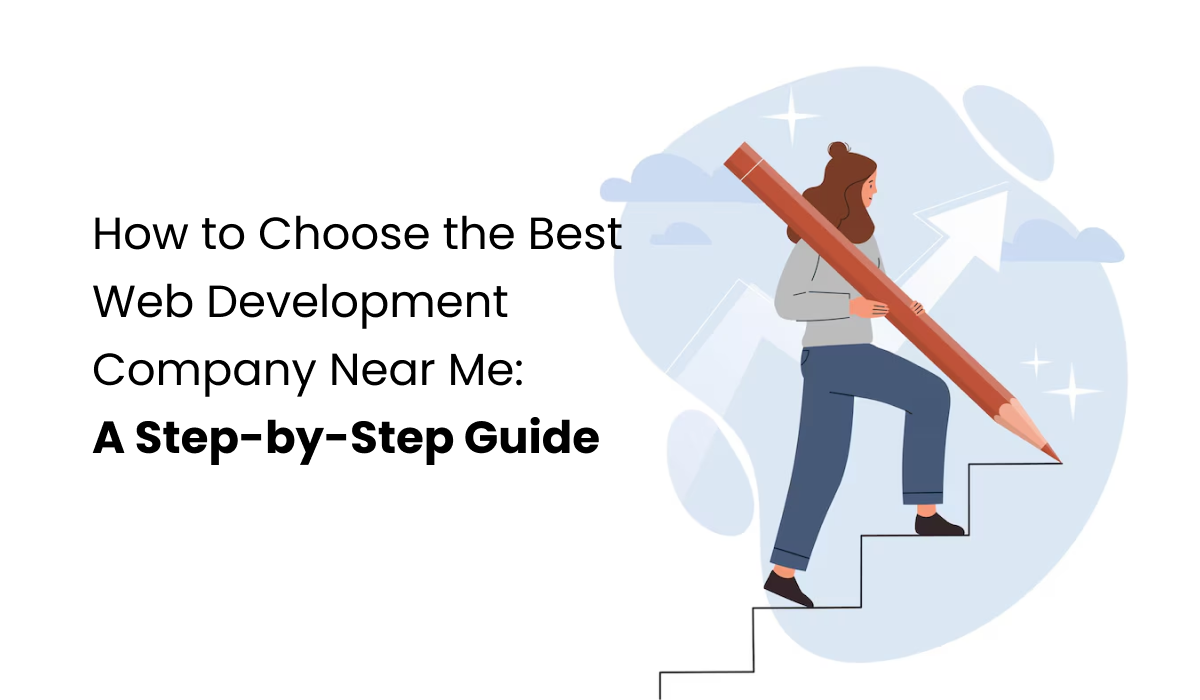Introduction
In today’s digital-first world, your website is often the first impression customers get of your business. Choosing the right web development company can be the difference between a thriving online presence and a frustrating digital experience. Whether you’re launching a new website or upgrading an existing one, hiring the right team is a critical step in your success.
More and more local business owners are turning to search engines, typing in phrases like “web development company near me” to find nearby experts they can trust. If that’s how you landed here, you’re already on the right track!
This step-by-step guide will help you confidently navigate the process of finding the best web development company in your area—one that fits your goals, budget, and timeline.
Step 1: Define Your Project Goals
Before reaching out to anyone, get clear on what you need.
Do you want:
A basic business website?
An online store (e-commerce)?
A personal portfolio or blog?
A custom-built web application?
Website redesign or performance optimization?
Checklist:
What’s the purpose of your website?
Who is your target audience?
What features are non-negotiable?
Do you need ongoing support or SEO?
Write down your must-haves before you start your search. This will save you time and help agencies tailor their quotes to your needs.
Step 2: Start with Local Research
Now it’s time to open your browser and start your search. Use phrases like “web development company near me” or “local web developers in [your city].”
Check:
Google Maps listings
Business directories (like Clutch, UpCity, Yelp)
Local Facebook or LinkedIn groups
Pay attention to:
Customer reviews
Business hours and location
Responsiveness and reputation
A local company is more likely to understand your market and can often offer face-to-face meetings or real-time support.
Step 3: Review Portfolios and Case Studies
Once you’ve shortlisted a few companies, dig into their work.
Look for:
Websites they’ve built in industries similar to yours
Clean design, mobile responsiveness, and fast load times
Case studies showing how they solved specific problems
If possible, ask for live examples or visit sites they’ve built to test performance and usability firsthand.
Step 4: Check Technical Expertise & Services
Not all web development companies are created equal. Some focus only on design, while others offer full-stack development, SEO, and ongoing support.
Evaluate their skills in:
Frontend (HTML, CSS, JavaScript)
Backend (PHP, Python, Node.js, etc.)
CMS platforms (WordPress, Shopify, Webflow, etc.)
Search engine optimization (SEO)
Responsive/mobile design
Are they staying up to date with new tools and security practices? A future-ready company will ensure your site stays relevant and competitive.
Step 5: Assess Communication and Support
Clear, timely communication is essential. A good company should:
Offer prompt responses to your inquiries
Be transparent about timelines and deliverables
Be available for regular updates or troubleshooting
Also, ask:
Do they offer post-launch support?
Will they train you to manage your site?
A nearby agency that communicates well can make the whole process smoother and more collaborative.
Step 6: Request Quotes & Compare Value
Once you’ve narrowed down your top contenders, request detailed quotes.
Don’t just compare prices—compare value:
What’s included in the package?
Are they offering SEO setup, content migration, or analytics?
Is hosting or maintenance part of the deal?
A higher price may include services that others charge extra for later. Choose the partner that offers the most for your investment—not just the lowest number.
Step 7: Schedule a Consultation
Before making your final decision, schedule a call or in-person meeting. Use this time to:
Share your goals and challenges
Ask about their development process
Get a feel for their professionalism and compatibility
You want a team that “gets” your vision and can turn it into a functional, beautiful reality.
Bonus Tip: Trust Your Gut
Even if a company looks great on paper, the human connection matters. Trust your instincts. If something feels off during communication, it’s okay to move on.
A strong working relationship leads to better outcomes, fewer misunderstandings, and long-term success.
Conclusion
Finding the right web development partner doesn’t have to be overwhelming. By following these steps—defining your goals, doing local research, reviewing portfolios, assessing communication, and comparing value—you’ll be well on your way to making a smart, confident decision.
Frequently Asked Questions
What should I look for in a web development company near me?
Focus on their experience, portfolio, client reviews, communication skills, and ability to understand your business goals.
Why should I choose a local web development company instead of a remote one?
Local companies often provide faster communication, understand your local market, and offer the possibility of in-person meetings.
How can I tell if a web development company is trustworthy?
Look for verified reviews, real client testimonials, transparent processes, and examples of past work or case studies.
What questions should I ask a web development company during consultation?
Ask about their development process, timelines, team experience, support after launch, and how they measure project success.
How important is it to check a company’s portfolio?
Very important. A portfolio shows the company’s design quality, technical skills, and whether they’ve worked on similar projects.
What services should a good web development company offer?
They should provide frontend and backend development, responsive design, SEO basics, and ongoing support or maintenance.
Can a local web development company help with SEO and content?
Many can. Some offer integrated services including SEO, copywriting, and digital marketing tailored to local audiences.
How long does it take to develop a website?
The timeline depends on the project’s scope and complexity. A local company can provide accurate estimates after reviewing your needs.
Should I choose a company that specializes in my industry?
It’s not essential, but it helps if the company has experience in your niche—they’ll understand your audience and design needs better.
What are the signs of good customer support in a web development company?
Look for timely responses, clear communication, post-launch support options, and a team that listens to your feedback.




